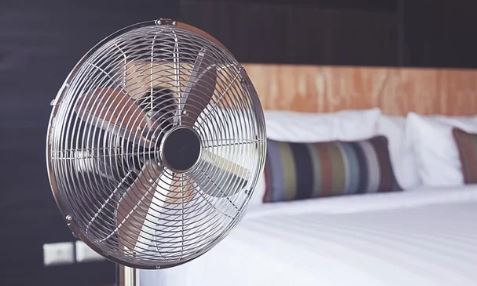Sleep is what soothes and restores us after a long day at work. Lack of sleep can adversely affect our health and wellbeing. Sleep plays a critical role in a number of vital functions of our body such as immune function, metabolism, learning, memory etc. When you miss sleep, you pay a price with your health, your ability learn and so much more.
So what follows is all the little known facts, tips and hacks to understand and practice the art of sleeping better.
SLEEP TO SURVIVE
Sleep could be as important as food for survival[1]. Scientists have shown that animals deprived of sleep die within two to three weeks, almost the same length of time as if deprived of food.
JUICE UP TO DRIFT OFF
Juice together 3 apples, 2 oranges, 1 lemon and 2 handfuls of iceberg lettuce leaves (which contains ketones, calming substances that act as a natural sedative). Drink a glass before bed to help you sleep like a baby.
WATCH OUT FOR THE BURNOUT
If you feel tired during the day but can’t sleep at night, it could be a sign that you’re over-training and not giving your body the rest it needs to thrive. If you don’t feel motivated and alert within ten minutes of starting your workout, stop.
TRYP OFF TO SLEEP
Tryptophan is one of the eight essential amino acids obtained in the diet from protein foods such as milk and meat. It enhances sleepiness and stimulates the production of sleep-inducing hormones in the brain.
SNACK ON SWEET-CORN FOR A SLEEPY NIGHT
Some foods – including sweet-corn, oats, rice, tomatoes and bananas – contain traces of melatonin, which helps regulate sleep.
HOLD YOUR TONGUE
Experts suggest that you try this clever sleep trick to help you drop off: close your eyes and hold your tongue so it’s not touching your cheeks or the roof or your mouth, as it you’re yawning with your mouth closed. You’ll be sleeping like a log in no time.
BEAT SNORING BY SLEEPING MORE
Sleep deprivation, especially if it’s over several weeks, causes the muscles of the throat to sag, which leads to more snoring and less sleep. To stop snoring[2], aim for at least seven hours of sleep a night.
SLEEP TO STAY FIT
Cardiovascular function can be reduced by an astounding 11% after cumulative sleep deprivation, which means sleep is essential if you want to stay fit and healthy[3].
GO WITH THE FLOW
There’s some evidence that reduced blood flow to hands and feet can keep you awake. Keep feet warm by wearing socks in bed or by investing in a hot water bottle.
PUT SLEEP FIRST
Lack of sleep impairs your coordination, judgement and immune system[4], say the experts, so put sleep first for a healthy life and get into good habits by going to bed at about the same time every night. If a particular job or task isn’t done by bedtime, just leave it until tomorrow.
BE A SLEEPING BEAUTY
Overnight, while you are asleep, your skin, hair and nails get a chance to regenerate themselves and deal with any health problems. Reducing the amount of sleep you get will therefore reduce the health of everything about your body including the way you look.
BE A HERBAL HIBERNATOR
Certain herbs such as valerian, camomile, hops and lime tree flowers have been shown to have sedative properties and are often taken either internally as a herbal tea or used within herbal pillows to enhance sleep.
BEWARE OF KNOCKOUT MEDICATIONS
Some medications used to treat insomnia may increase sleep, but if they reduce healing sleep then you won’t get the benefit of sleeping longer. Consult your doctor for advice.
SOAK AWAY INSOMNIA
A warm bath before bedtime can help you sleep by relaxing muscles and encouraging inactivity, which is essential for sleep. Try using calming aromatherapy oils such as lavender and lowering the lighting for an even sleepier experience.
DON’T EXERCISE LAST THING AT NIGHT
Because undertaking physical exercise raises internal body temperature, which, in turn, wakes you up, exercising before bedtime is not a good way to tackle insomnia. Instead, try relaxing stretches or an indulgent bath.
KEEP YOUR SLEEP ON SCHEDULE
According to the experts, going to sleep at about the same time every night helps your body get into a regular sleep rhythm, which will help put a stop to any sleep problems. Similarly, try to get up at the same time every day in order to keep your schedule on track.
AVOID CAFFEINE AFTER DARK
Caffeine has well-known stimulant effects and drinking it before bed is likely to impair the quality of your sleep. Remember that chocolate contains caffeine & many calories too so late-night treat might not in reality be a good idea either.
DON’T SPEED INTO SLEEP
If you are one of those people who fall asleep the very second their head hits the pillow at night, you could be suffering from the first effects of sleep deprivation. Healthy sleepers take an average of ten minutes to drop off.
SLEEP TO REGENER-EIGHT
It is estimated that the average person needs eight hours sleep a night to re-energize body and mind, so don’t beat yourself up about that weekend lie-in because your body needs it.
AIR YOUR SHEETS TO REFRESH YOUR SLEEP
Bacteria, mites and bedbugs thrive in moist conditions, so after you get up in the morning and instead of making the bed immediately, turn back the covers to allow the sheets to breathe for 30 minutes. Airing your bedroom by opening a window will help, too.
SLEEP LONGER TO LIVE LONGER
Recent studies have shown that people who sleep for less than six hours a night have a much higher mortality rate than those who give themselves just an hour or so longer in bed. So if you want to live longer, stay in bed.
STAY HIGH CARB FOR HIGH SLEEP
Glucose provides fuel for your brain, which is just as important while you are sleep as when you are awake[5]. Eating foods that are rich in carbohydrates in the evening, especially those that release their sugar content slowly, helps promote long and healthy sleep.
SINK INTO EGYPTIAN COTTON
Egyptian cotton sheets wick away about 18% more moisture than other types of bedding. This not only leaves your skin healthy and dry, it also prevents moisture problems developing and increases overnight comfort.
BANISH INSOMNIA WITH ELVIS’ CURE
Elvis’ favourite treat, the peanut butter and banana sandwich, could also be the best bedtime snack because of the high levels of sleep-inducing tryptophan it contains. It also releases energy slowly, promoting healthy sleep cycles.
DON’T NAP AWAY YOUR NIGHT’S SLEEP
Napping can ruin sleep habits, so keep it down to 20 minutes and don’t leave it until late. Mid-afternoon is the best time.
SLEEP YOUR PROBLEMS
If you’re living a stressful life, sleep might be the only chance your brain gets to sort out the problems. The unconscious workings of your brain could mean you wake up in the morning with a surprise solution.
HAND CARE WHILE YOU SLEEP
Not only does lavender hand cream give hands and nails a well-deserved moisture boost, but its scent induces deep sleep.
BE A COOL SLEEPER
Body temperature should drop naturally at night for the soundest, deepest sleep. Keep your bedroom cooler than the rest of the house and don’t use covers you don’t need. Research indicates that 16°C (62°F) is most conducive to restful sleep while temperatures above 24°C (71°F) are likely to cause restlessness.
SLEEP TO STAY SLENDER
A lack of sleep could slow down your metabolism[5], causing your body to hold onto weight. To stay slim and keep your metabolism optimal, make sure you are getting at least seven hours of good-quality sleep every night.


